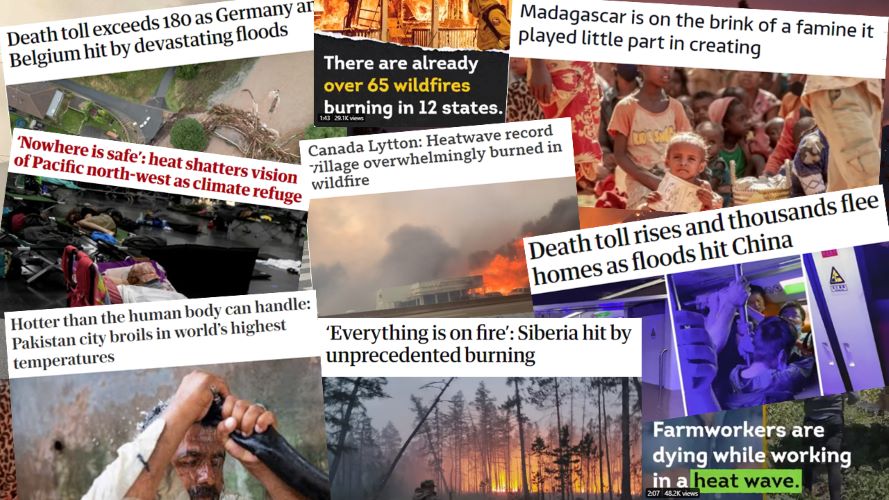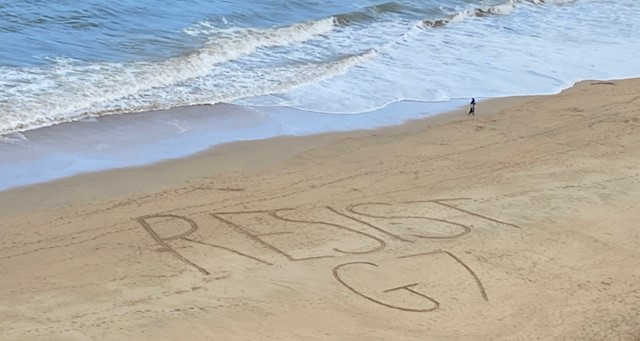As catastrophes unfold, have our leaders got the message yet?
Submitted by Claire on Wed, 2021-07-21 20:51
It's never been clearer that the climate crisis is here now. Below are news stories from just the past month describing extreme weather events and catastrophes from around the world. UPDATED 28 July
Some events are so extreme they could have not have occurred without climate breakdown, in other regions there is a trend of increasing frequency/severity. These events, alongside much worse predictions by scientists, should be enough to push world leaders into action on climate. But at best we see only half-measures and delay. Less than 100 days remain until the COP26 summit, and the UK government is issuing new oil drilling licences while ignoring the gap between its emissions targets and a lack of policies to meet them. We have to speak out and ensure the voices of those on the front lines of climate change are heard.
Heatwaves, drought and fire
Madagascar
Madagascar is on the brink of a famine it played little part in creating. In Southern Madagascar, a four-year drought and vicious sandstorms have destroyed crops and turned arable land to desert. As many as 500,000 are nearing starvation.
North America
‘Nowhere is safe’: heat shatters vision of Pacific north-west as climate refuge. A 'heat dome' brought unprecedented heat to the US Pacific north-west and western Canada. Known for mild summers, cities were unprepared for record temperatures of up to 42.2C (Seattle) and 46.7C (Portland, Oregon). Some inland areas managed to get up to 118F (47.8C). Hospitals suddenly found themselves overwhelmed, with several hundred people believed to have died in the heat. The town of Lytton shattered the previous heat record for Canada (45C), reaching 49.5C before residents fled a devastating wildfire, which destroyed large parts of the town. Temperature records are usually broken by fractions of degrees.



